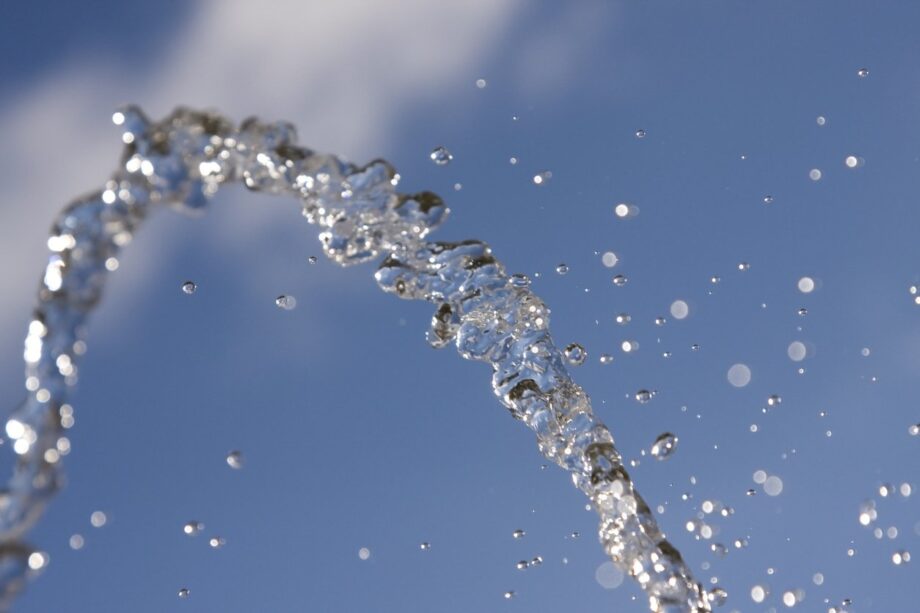Whenever we post an article about squirting, a debate inevitably breaks out in the comment section. Among the enthusiastic descriptions of squirting from those who say they've experienced it, there are always dissenters who say that squirting, well, it just doesn't exist. Oh, and if you happen to think you've experienced it, you've probably just peed in your bed.
- Accounts of Squirting Stretch Waaayyy Back
- Squirting Produces a Unique Substance
- The Way That Substance Is Produced Is Unique Too
- There's a Difference Between a Study and the Way the Media Portrays That Study
- There's a Mountain of Anecdotal Evidence That Squirting Exists
- The Fact That All Bodies Are Different Isn't Proof of Anything
Unfortunately, when it comes to sex, the science is woefully inadequate. (If you want to read a great book about just how hard it is to be a scientist studying sex, read "Bonk: The Curious Coupling of Science and Sex.") Even so, there are more than a few really solid reasons (and some relatively convincing studies) to believe that squirting is a physiological response to sexual stimulation, not a sign of incontinence. Here are a few of the best reasons to believe that squirting is the real deal, whether you've experienced it or not.
Accounts of Squirting Stretch Waaayyy Back
Squirting has been an, um, up and coming feature in popular pornography for years, but way before pornography was available on the Internet (or even on video) squirting had been noted by all sorts of writers and researchers and medical professionals. As early as the 17th century, the Skene's glands, which are still believed to produce at least some of the fluid in female ejaculate, were identified by Dutch physician Levinius Lemnius. Later, Dutch anatomist Regnier de Graaf wrote about a female prostate (again, the Skene's glands) and its involvement in the female ejaculatory response.
Of course, what this ejaculation actually meant changed over time, but by the 1920s, marriage manuals were calling it normal. Pioneering sex researchers Alfred Kinsey and William Masters and Virginia Johnson wrote about observing the expulsion of fluid during orgasm in their laboratories. Kinsey called it "genital secretions," while Masters and Johnson referred to it as "a type of fluid that was not urine." Some of the criticism against squirting and whether it's real is directed at pornography and the widespread portrayal of staged squirting as evidence that the phenomenon is a stunt, or that the idea somehow stemmed from pornography. In fact, squirting is something that had been observed long before pornography started really cashing in on it.
Squirting Produces a Unique Substance
The scientific research around squirting is pretty inconclusive, but when you look at it as whole, it provides some pretty interesting hints about what happens during a squirting orgasm. The first published account probably comes from Enerst Grafenberg in 1950. He's the physician who "discovered" the G-spot, so you can assume he was a pretty smart dude. He wrote about his observations of the expulsion of "clear, transparent fluids," which, while expelled from the urethra, "had no urinary character." A handful of studies conducted since the 1980s - like this one - found that while the emissions some women produce during orgasm often contain some urine, the substance is still different. One of the more notable studies found higher levels of prostate specific antigen (PSA), prostatic acid phosphatase (PAP) and glucose, and lower levels of creatinine than typical urine. Levels of PSA were comparable to those in male ejaculate, leading researchers to believe that the female prostate was involved.
The Way That Substance Is Produced Is Unique Too
A big part of the debate around squirting hinges on whether it's a bona fide sexual response, or simply an accidental release of urine during the heat of the moment. Research suggests that even though some of the fluid likely comes from the bladder, in most cases, the mechanism by which it is produced is not the same as urination. Most notably, a study conducted in 2001 catheterized women while they orgasmed in an effort to find out where the expelled fluid was coming from. They found that most of it came from the bladder, but that (as in other studies) the liquid produced was a significantly different from regular urine, and that it was expelled even when the women had an empty bladder when the test began. It also found that a small amount of milky-white emission was emitted outside of the catheter tube. The study's authors suggested that even if some of what is expelled during squirting is similar to urine, it isn't the same, and they said that the process that causes it to be expelled appears to be different than simple urination, and requires further study.
There's a Difference Between a Study and the Way the Media Portrays That Study
The most recent study on squirting was released in 2014 and, well, it kind of blew up some of the credibility built by earlier studies. It found that while the bladders of the women in the study were empty before stimulation began, they filled noticeably as the women became aroused and were emptied after the women had squirted. And, although small amounts of prostatic fluid were found in the emitted substance, the study concluded that the women were urinating involuntarily. So, apparently, while these women did, in fact, squirt in response to sexual stimulation, the squirting was deemed unintentional urination rather than a sexual response.
So, wait ... this study had similar findings to the 2001 study of catheterized women, but concluded that because the substance came mostly from the bladder, these women were just wetting the bed? Interesting, right? And why is it that we feel like squirting some mystical lady juice is sexy as hell, while squirting something that resembles urine is just gross? Regardless of exactly what's in a female ejaculation or where it comes from, what we know for sure is that some women expel liquid during orgasm and that they tell us it's an amazing part of the experience. What else do we really need to know?
There's a Mountain of Anecdotal Evidence That Squirting Exists
Science often looks down on anecdotal evidence and, to be fair, it can be seriously flawed. That said, you can't discount anecdotal evidence entirely; it's often what leads to scientific study in the first place. And when it comes to anecdotal evidence, squirting has a mountain of it. Not only has squirting appeared in scientific and literary writings for a very long time, there are also thousands of women who say they've experienced it first-hand. Many of them also call it a highly pleasurable part of a really great orgasm. So why do we assume that a few scientists in a lab know more about these women's sexual experiences. Sex, after all, is largely experiential. If women are experiencing female ejaculation as an expression of their pleasure, then it is a sexual response. Period. And if that expression comes from the bladder or resembles pee, well, so be it.
Anecdote is often the driving force behind scientific study, especially when it comes to personal experience. One study found that 35 out of 47 anecdotal reports of drug side effects turned out to be correct. Clearly, when people thought they felt something, they were often correct. Why would we assume the same cannot be said for squirting? Rather than shutting down women's experiences, science should be listening to them and using their experiences to drive new research. Beyond what we can prove about female ejaculation, what we can learn?
The Fact That All Bodies Are Different Isn't Proof of Anything
One of the big problems that studies about squirting run into is that there is a lot of variation between study participants. Some women produce huge volumes of liquid upon orgasm. Some produce very little. Wow. Huge surprise there. Bodies are different. The way different people experience orgasm is different. The things that turn them on is different. Heck, some people can experience an orgasm via stimulation of their knee, their nose, or in all sorts of other ways that we may not understand. In fact, famed sex researcher Alfred Kinsey wrote extensively about individual variation, and noted that variation among humans could be of a magnitude of thousands of times. So, while not all squirters are the same in the lab, it's important to remember that variation in sexual response is normal. Just because there is a wide variation in a sexual phenomenon doesn't negate its existence - it might just mean there's a lot more we have to learn!
So what do you think? Have you experienced squirting or seen a partner do it?
- Accounts of Squirting Stretch Waaayyy Back
- Squirting Produces a Unique Substance
- The Way That Substance Is Produced Is Unique Too
- There's a Difference Between a Study and the Way the Media Portrays That Study
- There's a Mountain of Anecdotal Evidence That Squirting Exists
- The Fact That All Bodies Are Different Isn't Proof of Anything




